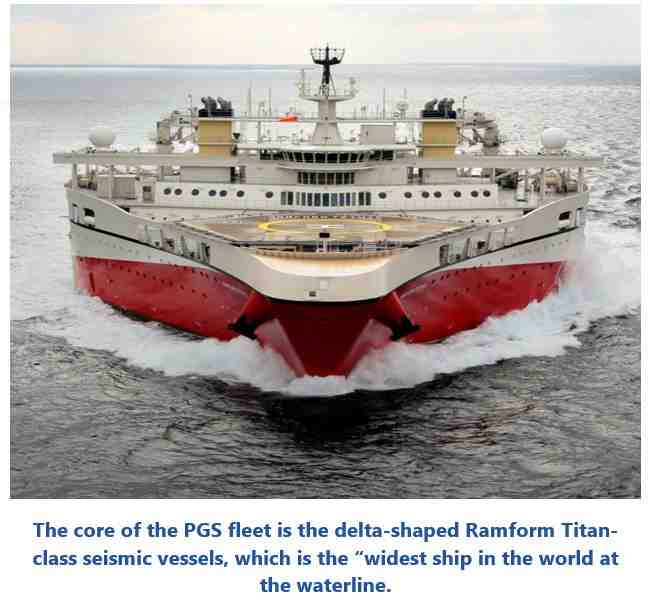

Keywords
Data Operations Platform, Subsurface Data Platform, PGS, Cognite, Digital Transformation, Marine Geophysical, Vessel Safety, Subsurface Data, Seismic Data, Data Management as a Service (DMaaS), ARC Advisory Group.
PGS, headquartered in Oslo, Norway, is an integrated marine geophysical company that provides subsurface imaging data and services worldwide for both hydrocarbons, renewables, and carbon storage energy industries. With over 30 years’ experience and almost 1,000 employees, the company generates, processes, and sells seismic data. At the ARC Forum, Espen Grimstad, Data Platform Manager, PGS, described how PGS is digitally transforming, with a digital factory that empowers new digital projects, adopting a data operations platform, and deploying data as a service using the cloud.
PGS collects petabytes of subsurface data using their vessels and their GeoStreamer acquisition platform. In addition to providing data for the oil and gas companies, PGS is focusing on providing subsurface data for renewable companies. Each GeoStreamer PURE survey consists of a single connecting dataset on the same grid, with accurate subsurface images delivered via broadband. PGS has over 100,000 square kilometers of GeoStreamer data in its Northwest Europe data library. GeoStreamer PURE includes regional reservoir detail for key hydrocarbon provinces offshore Norway and in the North Sea. Beginning in 2009, PGS has re-imaged and revitalized parts of the Norwegian continental shelf with GeoStreamer 3D.
PGS began their digital transformation in 2019 with three projects that involved partnering with Google, Cognite and others. The initial digitalization projects that Mr. Grimstad described were designed to increase the speed and propagation of data and how their digital transformation will continue to expand to other business areas. According to Mr. Grimstad, “It is important for us to be able to obtain more data and that requires a fast data operations platform.
PGS can bring out more vessels if the capacity is needed, but you cannot contextualize and scale data sufficiently for the enormous volume of data we have unless you have a good platform to start.” For their data operations platform, PGS selected Cognite Data Fusion.

PGS operates six seismic vessels equipped to gather subsurface data. The vessels can stay out at sea for as much as 120 days without re-fueling to lower operating costs. The vessels gather data that PGS transforms into 3D images of the subsurface. The Ramform Titan-class, PGS’ newer vessels that gather data, are three times larger than other modern vessels. These vessels are purpose-built, highly efficient for obtaining seismic data, quiet, and optimized for data acquisition of different types of data including 2D, 3D and 4D.
To obtain reliable broadband seismic data, sensors that combine hydrophones and geophones are embedded in towed streamers. Tow configurations can be up to ten kilometers long and two kilometers wide, recording vast amounts of data in one sweep. Mr. Grimstad mentioned that “The sensors generate a lot of data every day 24/7.”
Mr. Grimstad said, “the key to our success was finding the right business partner and learning new ways to work to solve real business problems that deliver value back to the business. The ability to ingest and contextualize the data was the operational backbone for enablement of their solution. To be successful in case selection and evaluation, you need to answer four key questions: ‘What is the problem you are trying to solve? What business value will it bring? What does success look like? How does this use case link to PGS’ strategy?’” It is also important that the organization feels like they are included in the process. Having organizational alignment, understanding the business value, and communicating the value is necessary to realize the use case’s potential. This involves stakeholders and end users throughout the project’s development.
PGS has three main digital transformation initiatives to accelerate their strategy. In addition to the traditional seismic data business, the company will use trends, financial and other types of data to develop new products, new use cases and new business models.
ARC Advisory Group clients can view the complete report at ARC Client Portal
If you would like to buy this report or obtain information about how to become a client, please Contact Us
Learn more about ARC In-depth Research at Market Analysis
Learn more about ARC Strategic Services at Advisory Services for Industry Leaders

